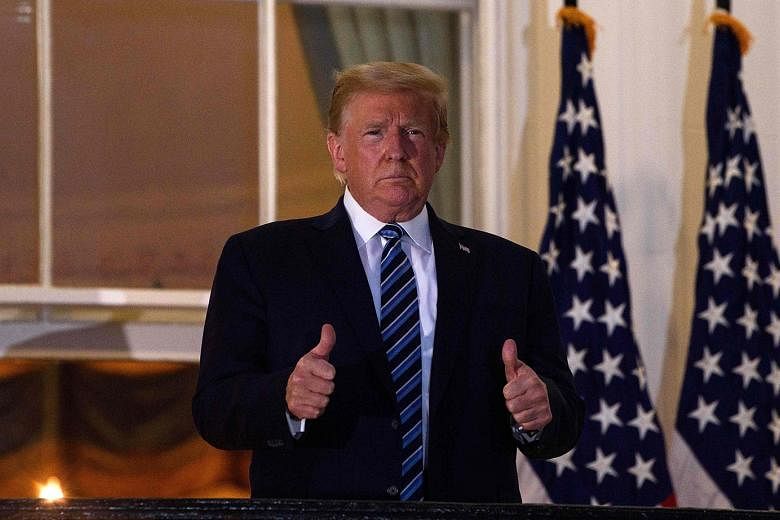When it comes to fighting against the Covid-19 pandemic, Singapore has been punching above its weight.
Blood samples from three patients here were used to develop the experimental antibody cocktail used to treat United States President Donald Trump after he tested positive for the coronavirus.
Singapore's National Centre for Infectious Diseases (NCID) had responded to a collaboration request from US biotechnology firm Regeneron - the company which developed that antibody cocktail - with no claim of intellectual property right over the treatment.
NCID was requested to recruit up to 20 recovered patients for contribution of samples.
After obtaining ethics approval and patients' informed consent, NCID recruited five patients and was informed by Regeneron that they had - at that point - sufficient samples to develop the antibody cocktails, Associate Professor David Lye, senior consultant and director of the Infectious Disease Research and Training Office at NCID, told The Straits Times yesterday.
Regeneron eventually used three of the five Singapore patient samples as the research starting point to develop the antibodies.
Regeneron's treatment, called REGN-COV2, is a combination, or "cocktail", of two antibodies which are infection-fighting proteins that were developed to bind themselves to the virus and inhibit it from invading human cells.
A cocktail would make it more difficult for the virus to mutate and escape the antibodies as more of them are targeting different sites of the virus.
In a paper published in Science Magazine in June, Regeneron scientists described how they selected the two best antibodies from both recovered human patients and infected mice that were genetically modified to give them human-like immune systems.
The company has released some promising early data regarding its Covid-19 therapy, but no details that would prove the efficacy of the treatment have been made public.
Besides the collaboration with Regeneron, Singapore is also part of a global phase three monoclonal antibody trial, named Activ-3, which started in August and aims to recruit 1,000 patients globally.
As at Thursday, 260 patients had been recruited in the global trial, most of them from Denmark and the US. Singapore is only the third country to start recruiting patients for it.
Activ-3 is estimated to be completed by the year end or in January, so Singapore's contribution will depend on how long it takes for the trial to recruit the study number and how many patients are eligible for the trial here.
The monoclonal antibody was developed by American pharmaceutical company Eli Lilly. It is a purified, highly active antibody that targets the spike protein of the coronavirus.


